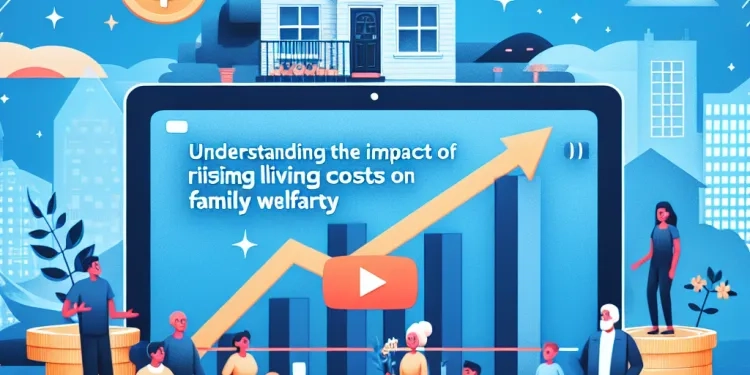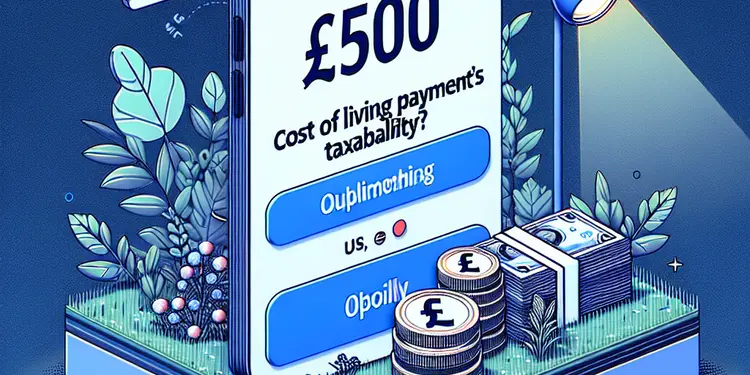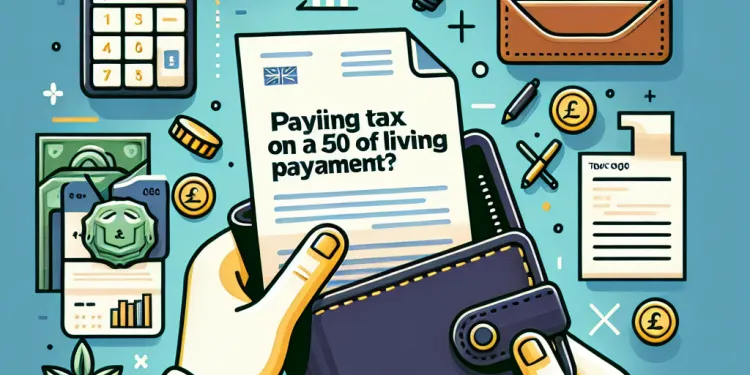
Find Help
More Items From Ergsy search
-

Navigating the UK Cost of Living Crisis: Tips for Families
Relevance: 100%
-

Addressing the Cost of Living Crisis: Community Support and Resources
Relevance: 79%
-

Mental Health Impact of Cost of Living Crisis and Support Resources
Relevance: 78%
-

Impact of Rising Living Costs on Family Health
Relevance: 64%
-

Understanding the Impact of Rising Living Costs on Family Welfare
Relevance: 62%
-

How Rising Living Costs Are Impacting Family Wellbeing
Relevance: 62%
-

Financial Support for Families Amid Rising Cost of Living
Relevance: 61%
-

Rising Cost of Living: How Families Can Cope
Relevance: 60%
-

Cost of Living Crisis: Supermarkets Promise More Discounts for Shoppers
Relevance: 58%
-

Impact of Cost of Living on UK Communities
Relevance: 58%
-

Addressing the Housing Crisis: Current Challenges and Solutions
Relevance: 52%
-

Impact of UK Housing Crisis on Local Communities
Relevance: 50%
-

Is the £500 cost of living payment taxable?
Relevance: 49%
-

What is the £500 cost of living payment?
Relevance: 49%
-

What is the £500 cost of living payment?
Relevance: 49%
-

Charities Warn of Food Insecurity Amidst Rising Cost of Living
Relevance: 47%
-

Is the £500 cost of living payment taxable?
Relevance: 46%
-

Is the £500 cost of living payment a one-time payment?
Relevance: 46%
-

Is there a deadline to apply for the £500 cost of living payment?
Relevance: 46%
-

Is the £500 cost of living payment a one-time payment?
Relevance: 46%
-

When will I receive the £500 cost of living payment?
Relevance: 45%
-

Where can I find more information about the £500 cost of living payment?
Relevance: 45%
-

Will the £500 cost of living payment affect my benefits?
Relevance: 45%
-

Are students eligible for the £500 cost of living payment?
Relevance: 45%
-

Addressing the Rising Cost of Living: Community Support and Resources
Relevance: 45%
-

Are pensioners eligible for the £500 cost of living payment?
Relevance: 45%
-

How do I apply for the £500 cost of living payment?
Relevance: 45%
-

UK's Elderly Population Faces Growing Loneliness Crisis
Relevance: 43%
-

Are there any fees to apply for the £500 cost of living payment?
Relevance: 43%
-

How can I apply for the £500 cost of living payment?
Relevance: 42%
-

Who is eligible to receive the £500 cost of living payment?
Relevance: 42%
-

Do I need to pay tax on the £500 cost of living payment?
Relevance: 42%
-

Impact of Rising Energy Costs on Family Budgets
Relevance: 42%
-

Can students receive the £500 cost of living payment?
Relevance: 41%
-

Can I receive this payment alongside other cost of living payments?
Relevance: 41%
-

how do I get the £500 cost of living payment before March deadline?
Relevance: 41%
-

Addressing the Rising Homelessness Crisis
Relevance: 40%
-

Can mature students apply for the £500 cost of living payment?
Relevance: 40%
-

Where can I find more information about the £500 cost of living payment?
Relevance: 39%
-

How can students apply for the £500 cost of living payment?
Relevance: 39%
Navigating the UK Cost of Living Crisis: Tips for Families
Understanding the Crisis
The UK cost of living crisis has significantly impacted families across the nation. With soaring energy bills, rising food costs, and increased housing expenses, managing household finances has become more challenging than ever. Being informed about these changes and understanding the economic pressures can help families take timely and effective measures to mitigate financial stress.
Budgeting Wisely
Maintaining a well-structured budget is crucial during these times. Begin by tracking your income and expenses meticulously. Utilize budgeting apps or tools that provide a clear overview of your financial situation. Prioritize essential expenses such as housing, utilities, and groceries, and look for areas where you can cut back or save. For instance, reducing discretionary spending on non-essential items can provide some financial breathing room.
Utilizing Government Support
The UK government offers various programs and benefits aimed at assisting families struggling with the cost of living. Familiarize yourself with available support such as Universal Credit, Child Tax Credit, and Housing Benefit. Additionally, during colder months, families might qualify for the Winter Fuel Payment or Cold Weather Payment. Applying for these benefits can ease some of the financial burdens.
Energy-Saving Measures
Energy bills represent a significant portion of household expenses. Implementing energy-saving measures can be highly effective in reducing these costs. Simple actions such as sealing draughts, using energy-efficient appliances, and maintaining a lower thermostat setting can make a difference. Consider applying for grants or schemes that support home insulation and energy efficiency improvements.
Smart Shopping and Meal Planning
Grocery bills can quickly add up, but smart shopping and meal planning can help maintain a balanced diet without overspending. Opt for seasonal produce, buy in bulk, and make use of discounts and loyalty programs available at supermarkets. Planning meals ahead and cooking at home not only saves money but also promotes healthier eating habits.
Seeking Financial Advice
If managing finances becomes overwhelming, seeking professional financial advice can be beneficial. Debt advice charities and financial advisors can offer guidance tailored to your specific circumstances. They can help with debt management plans, budgeting advice, and can suggest ways to optimize your financial situation. Don't hesitate to reach out for support if needed.
Building a Support Network
Managing financial stress is easier when you have a support network. Share your concerns and seek advice from friends, family, or community groups. Sometimes, pooling resources or sharing tips can lead to practical solutions. Community centers and local organizations often have resources and programs to assist families during tough economic times.
Navigating the UK Cost of Living Crisis: Tips for Families
Understanding the Crisis
The UK is currently experiencing a cost of living crisis, with inflation rates soaring and wages not keeping pace. This has resulted in increased prices for essential goods and services, making it challenging for families to manage their household budgets. Understanding the key factors contributing to this crisis can help families be better prepared and informed in their financial decisions.
Budgeting and Financial Planning
Effective budgeting is crucial during times of economic uncertainty. Begin by evaluating your monthly income and expenses. Identify non-essential expenses that can be reduced or eliminated. Establish a realistic budget plan that prioritizes necessities such as housing, utilities, groceries, and transportation. Consider using budgeting apps for better money management and to track your progress.
Reducing Energy Costs
Energy costs have seen a significant rise, impacting household finances. Families can reduce these costs by improving energy efficiency in their homes. Simple measures like using LED light bulbs, installing a smart thermostat, and ensuring good insulation can lower utility bills. Additionally, check if you're eligible for any government grants or programs aimed at supporting energy-saving measures.
Saving on Groceries
Grocery bills are a major part of household expenses. To save money, start by creating a meal plan and shopping list before heading to the supermarket. Take advantage of discounts, loyalty programs, and coupons offered by stores. Buying in bulk and choosing own-brand products over premium brands can also result in substantial savings over time.
Exploring Government Support
Families should explore available government support programs designed to aid those affected by the cost of living crisis. In the UK, benefits such as Universal Credit, Child Benefit, and Housing Benefit may provide crucial assistance. It's important to regularly check eligibility criteria and application processes to ensure your family receives the support it needs.
Accessing Community Resources
Communities across the UK have resources like food banks, local charities, and community centers that can offer support. These can provide valuable relief for families struggling to make ends meet. Engaging with community initiatives not only eases financial burden but also fosters connections and support networks within the community.
Conclusion
While the UK cost of living crisis presents significant challenges, proactive measures and informed decisions can help families navigate this difficult period. By understanding the crisis, managing finances effectively, and utilizing available resources, families can mitigate the impact and maintain financial stability. Sharing information and strategies with others can also empower communities to support one another more effectively.
Navigating the UK Cost of Living Crisis: Tips for Families
Understanding the Crisis
The cost of living crisis in the UK is making life harder for families. Things like electricity, food, and rent are getting more expensive. It's important to know what's happening so you can make good choices with your money. This can help make things less stressful.
Budgeting Wisely
Making a budget is very important right now. Start by keeping track of all the money you earn and spend. You can use budgeting apps to help. Spend money first on what you need most, like your home, bills, and food. Try to spend less on things you don't need as much. This can help save money.
Utilizing Government Support
The UK government has programs to help families who are having a hard time. Learn about support like Universal Credit, Child Tax Credit, and Housing Benefit. During cold months, some families can get payments to help with heating. Finding out what help you can get can make life easier.
Energy-Saving Measures
Electricity and gas bills can be expensive. You can save money by using less energy. Try simple things like blocking cold air coming in, using appliances that save energy, and lowering your heater a bit. You might also get money to help make your home better at saving energy.
Smart Shopping and Meal Planning
Buying food can cost a lot, but planning can help save money. Buy fruits and veggies that are in season, buy in bulk, and use coupons or store rewards. Planning your meals and cooking at home saves money and is healthy too!
Seeking Financial Advice
If handling money is too hard, getting advice from experts can help. There are charities and advisors who can help you plan your budget and manage debt. Don't be afraid to ask for help if you need it.
Building a Support Network
It's easier to deal with money worries if you have support. Talk to friends, family, or community groups. Sometimes, sharing tips or resources can help. Local community centers might also have programs or advice to help families.
Navigating the UK Cost of Living Crisis: Tips for Families
Understanding the Crisis
The UK is having a cost of living crisis. This means prices for many things we need, like food and bills, are getting a lot higher. But, people's wages are not going up as fast. This can make it hard for families to manage their money. Knowing why this is happening can help families make smart money choices.
Budgeting and Financial Planning
Planning your money well is very important now. Start by looking at how much money comes in and goes out each month. Find things you spend money on that you don't really need. Make a plan to spend your money that helps you pay for important things like rent, bills, food, and travel. You can use apps to help you keep track of spending and saving.
Reducing Energy Costs
Energy bills are getting more expensive. Families can reduce these bills by making homes more energy-efficient. Use LED light bulbs, get a smart thermostat, and make sure your home is well insulated to keep heat in. These are simple things that can help save money on energy. Check if you can get help from the government for saving energy.
Saving on Groceries
Food shopping is a big cost for families. To save money, plan your meals and make a shopping list before going to the store. Look for discounts, loyalty cards, and coupons. Buying bigger packs and choosing store-brand items can save money too.
Exploring Government Support
Families should look for help from the government. In the UK, there is Universal Credit, Child Benefit, and Housing Benefit. These can help families with money problems. It's important to regularly check if you can get this help and how to apply for it.
Accessing Community Resources
There are places in the UK like food banks, local charities, and community centers that help people in need. These can provide important support for families who are struggling. Joining in with community support can help ease money worries and also meet others who are in the same situation.
Conclusion
The UK cost of living crisis is tough for families, but there are things you can do to help. Understand what's happening, plan your money, and use available resources to get through this time. Sharing tips and helping others can strengthen families and communities.
Frequently Asked Questions
What is the UK Cost of Living Crisis?
The UK Cost of Living Crisis refers to the significant increase in the prices of everyday essentials such as food, fuel, and energy, which has put financial pressure on households across the country.
How can families save on their energy bills during the crisis?
Families can save on energy bills by using energy-efficient appliances, insulating their homes, using smart meters to monitor usage, and switching to a better energy tariff if available.
Are there government assistance programs available to help with the cost of living?
Yes, the UK government has introduced various assistance programs, such as the Warm Home Discount, Cold Weather Payments, and Universal Credit, to support those most affected by the cost of living crisis.
What are some tips to reduce food expenses?
To reduce food expenses, plan meals in advance, make a shopping list, buy in bulk, consider own-brand products, and reduce food waste by storing leftovers properly.
How can families manage transportation costs?
Families can manage transportation costs by using public transport when possible, carpooling, maintaining vehicles for better fuel efficiency, and considering cycling or walking for shorter distances.
What strategies can help families with budgeting during the crisis?
Creating a detailed monthly budget, tracking all expenses, prioritizing essential spending, and identifying areas where cuts can be made are effective strategies to help families manage their budgets.
How can families access affordable childcare?
Families can access affordable childcare through government schemes like Tax-Free Childcare, 15 or 30 hours of free childcare for eligible children, and exploring local community nursery options.
Where can families find assistance with debt management?
Families can seek assistance from organizations like Citizens Advice, StepChange Debt Charity, and National Debtline, which offer free advice and support for managing debts.
Are there community resources that can help during the crisis?
Yes, community resources such as food banks, local charities, and support groups can provide essential supplies and assistance to families in need.
What financial tools are available to help track spending?
Financial tools such as budgeting apps (e.g., Money Dashboard, Yolt), online banking tools, and spreadsheets can help track spending and manage finances more effectively.
How can families find cheaper housing options?
Families can explore housing options such as renting in less expensive areas, considering shared housing, negotiating rent, or seeking help from housing associations dedicated to providing affordable housing.
What should families do if they are struggling with mortgage payments?
Families struggling with mortgage payments should contact their lender to discuss options like payment holidays, reduced payments, or refinancing, and seek advice from organizations like Shelter or a financial advisor.
How can families reduce their internet and phone bills?
To reduce internet and phone bills, families should review their current plans, look for deals, negotiate with providers, make use of Wi-Fi instead of mobile data, and eliminate unnecessary services.
Can shopping habits impact the cost of living? How?
Yes, shopping habits can impact the cost of living. By buying in bulk, avoiding impulse purchases, using loyalty programs, and comparing prices through apps or websites, families can reduce their expenses.
What are some long-term strategies to cope with the cost of living increases?
Long-term strategies include increasing income through education and skills development, investing in energy-efficient home upgrades, building an emergency fund, and continuously reviewing financial goals and plans.
What is the UK Cost of Living Crisis?
The UK Cost of Living Crisis means that things like food, houses, and bills are getting more expensive. People are finding it hard to pay for things they need.
If you need help, here are some ideas:
- Ask someone you trust to help explain.
- Look at pictures or videos about the topic.
- Use a dictionary for any hard words.
The UK Cost of Living Crisis means things are getting more expensive. Everyday things like food, fuel, and energy now cost a lot more money. This makes it hard for many families to pay for what they need.
How can families spend less money on energy during hard times?
Here is how families can save money on energy:
- Turn off lights when you leave a room.
- Use energy-saving light bulbs.
- Turn off appliances when not using them.
- Use a sweater and blankets to stay warm, instead of turning up the heat.
- Shut doors to keep the heat in one room.
- Take short showers to use less hot water.
- Ask for help to understand your energy bill better.
You can also use tools like smart meters. They show how much energy you use. This can help you see where to save.
Families can save money on energy bills by doing these things:
- Use appliances that don't use much energy.
- Keep homes warm with insulation.
- Use smart meters to check how much energy is used.
- Switch to a cheaper energy plan if you can.
Tools like smart meters can help you keep track.
Can the government help with living costs?
The government has programs to help pay for your needs, like food and rent. You can apply for these programs to get help.
Here are some tips:
- Ask someone you trust to help fill out forms.
- Use pictures and videos to understand the information better.
- Break things into small, easy steps.
Yes, the UK government has made some help programs. They are for people who need extra support because things are getting expensive. These programs are called the Warm Home Discount, Cold Weather Payments, and Universal Credit.
If you find reading hard, you can use tools like text-to-speech programs. They can read out loud for you. Also, you can ask someone to help explain confusing parts.
How can I spend less money on food?
To spend less money on food, you can:
- Plan meals ahead of time.
- Write a shopping list.
- Buy in large amounts to save.
- Think about buying store-brand products.
- Keep leftover food safe to eat later, so you do not waste it.
How can families handle travel costs?
Traveling can cost a lot of money for families. Here are some easy ways to save money on travel:
- Plan ahead: Think about your trips and plan them early. This helps you find cheaper options.
- Use public transport: Buses and trains can be cheaper than cars.
- Carpool: Share rides with friends or family to save on fuel.
- Compare prices: Look at different options online to find good deals.
Using these tips can help families spend less on traveling.
Families can save money on travel in easy ways. Use buses or trains when you can. Share car rides with others. Take care of your car so it uses less fuel. For short trips, think about riding a bike or walking.
How can families manage their money better during hard times?
Here are some ideas to help:
- Make a list of what you spend money on. This is called a budget.
- See where you can spend less. Try to save money on things you don't need.
- Look for help in your community. Sometimes there are places that give food or other help for free.
- Use apps on your phone that can help you keep track of your money.
- Talk to someone who knows about money. They can give you good advice.
Remember, it's okay to ask for help. You don't have to do it alone.
Making a simple money plan for each month can help families. You can write down all the money you get and spend. This helps you see what is important to buy and where you can spend less. There are tools like budgeting apps or worksheets that can make this easier.
How can families find childcare that is not too expensive?
Here are some simple steps families can take:
- Ask friends or family if they know of good and low-cost childcare places.
- Look for local community centers or churches that offer childcare services.
- Check if your town has any programs that help with the cost of childcare.
- Visit websites that list affordable childcare options near you.
Tools or techniques that might help:
- Make a list of what you need from a childcare provider, like hours and location.
- Use a calendar to plan visits to different childcare places.
- Try using simple apps or websites that compare prices of childcare services.
Families can get help to pay for childcare.
The government has programs like Tax-Free Childcare.
Some children can get 15 or 30 hours of free childcare each week.
Look for nurseries in your area that can help too.
Where can families get help with money problems?
Families can get help from places like Citizens Advice, StepChange Debt Charity, and National Debtline. These places give free advice and help with money problems.
Can the community help during a tough time?
Are you having a hard time? There are people and places that can help you. Here are some ideas to make it easier:
- Ask a friend or family member for help.
- Look for groups in your town that give support.
- Call a helpline to talk to someone who understands.
- Use pictures or drawings to show how you feel.
Yes, places like food banks, local charities, and support groups can help families who need food and other important things.
What tools can help you track your spending?
Here are some tools that can help you keep track of your money:
- Money Apps: You can download apps on your phone to help you see where your money goes.
- Spending Planners: You can use planners or notebooks to write your spending down.
- Bank Alerts: Some banks can send you messages to tell you about your spending.
- Spreadsheets: You can use simple sheets on your computer to list what you spend.
Ask someone you trust to explain these tools if you need help.
There are tools that help you with money. These tools can make it easier to know where your money goes and how to save it.
Here are some examples:
- Apps for making a budget, like Money Dashboard and Yolt.
- Online tools you can use with your bank.
- Spreadsheets to keep track of spending and saving.
These can help you handle your money better.
How can families find cheaper places to live?
Finding a cheaper place to live can help families save money. Here are some easy steps to try:
1. Look online: Use websites and apps to find homes that cost less. Ask a friend or family member to help if you need it.
2. Talk to people: Ask friends, family, or neighbors if they know about cheaper homes.
3. Visit your library: The library can have books and computers to help you find homes.
4. Speak to a helper: You can talk to a housing advisor or social worker for more advice.
5. Make a budget: Write down how much money you have and how much you can spend on a home. This will help you know what to look for.
These steps can make it easier to find an affordable home for your family.
Families can look at different places to live, like:
- Renting a home in a cheaper area
- Living with other people to share the house
- Talking to the landlord to get a better rent deal
- Asking special groups for help to find a cheaper home
Using pictures or talking with someone can help you decide what is best for your family.
What can families do if they have trouble paying their house bills?
If a family finds it hard to pay for their house, they should tell their bank. The bank can offer help. Families can also talk to a money expert. This person can give good advice. Making a plan to save money can help too. Using a calculator to see how much money is needed each month is good. Families can ask for help online or from a group that helps with money problems.
If you are having trouble paying your mortgage, talk to your bank. They can help you in different ways. You might be able to take a break from payments, pay a smaller amount for a little while, or change your loan to make it easier. You can also ask places like Shelter or a money expert for help. They will give you good advice.
Ways for families to spend less on internet and phone
Here are some easy tips to help families save money on their internet and phone bills:
- Compare different service plans. See if there are cheaper options that give you what you need.
- Consider bundling services. Sometimes, you can pay less if you get your internet and phone from the same company.
- Use free Wi-Fi. Connect to free internet at places like libraries or cafes when you can.
- Check your data use. Make sure you don’t pay extra for using too much data.
- Ask for discounts. Call your provider to see if they have any special deals.
Using clear plans, budgeting, and asking questions can help you save money.
To make internet and phone bills smaller, families can do a few things. First, check what plans they have now. Then, look for any new deals. They can talk to their providers to try and get a better price. Use Wi-Fi instead of mobile data to save money. Also, stop paying for services they don't need.
Can the way you shop change how much you spend? How?
Think about how you shop. It can change how much money you spend. Here is how:
- Make a List: Write down what you need before you go shopping. This can stop you from buying things you don't need.
- Look for Sales: Try to buy things when they are on sale. This can help you save money.
- Compare Prices: Look at prices in different stores to find the best deal.
- Use Coupons: Coupons can help you get things for less money.
- Try a Budget: Plan how much money you will spend. Stick to your budget.
Tools that can help you:
- Shopping Apps: These can show you sales and coupons.
- Calculator: Use it to add up prices while you shop.
Yes, the way we shop can change how much money we spend. Families can save money by doing a few things:
- Buy in large amounts. This can be cheaper.
- Don't buy things without thinking first.
- Use store cards or programs that give you points.
- Check prices on different apps or websites to find the best deal.
How can I plan for things getting more expensive?
Here are some things you can do to have more money and feel better about your money:
- Learn new things or get better at your job to earn more money.
- Make your home use less energy so you can save money.
- Save a little bit of money regularly for emergencies.
- Think about what you want with your money and check your plans often.
Sometimes, tools like budgeting apps or talking to a money helper can be handy.
Useful Links
This website offers general information and is not a substitute for professional advice.
Always seek guidance from qualified professionals.
If you have any medical concerns or need urgent help, contact a healthcare professional or emergency services immediately.
Some of this content was generated with AI assistance. We’ve done our best to keep it accurate, helpful, and human-friendly.
- Ergsy carfully checks the information in the videos we provide here.
- Videos shown by Youtube after a video has completed, have NOT been reviewed by ERGSY.
- To view, click the arrow in centre of video.
- Most of the videos you find here will have subtitles and/or closed captions available.
- You may need to turn these on, and choose your preferred language.
- Go to the video you'd like to watch.
- If closed captions (CC) are available, settings will be visible on the bottom right of the video player.
- To turn on Captions, click settings .
- To turn off Captions, click settings again.
More Items From Ergsy search
-

Navigating the UK Cost of Living Crisis: Tips for Families
Relevance: 100%
-

Addressing the Cost of Living Crisis: Community Support and Resources
Relevance: 79%
-

Mental Health Impact of Cost of Living Crisis and Support Resources
Relevance: 78%
-

Impact of Rising Living Costs on Family Health
Relevance: 64%
-

Understanding the Impact of Rising Living Costs on Family Welfare
Relevance: 62%
-

How Rising Living Costs Are Impacting Family Wellbeing
Relevance: 62%
-

Financial Support for Families Amid Rising Cost of Living
Relevance: 61%
-

Rising Cost of Living: How Families Can Cope
Relevance: 60%
-

Cost of Living Crisis: Supermarkets Promise More Discounts for Shoppers
Relevance: 58%
-

Impact of Cost of Living on UK Communities
Relevance: 58%
-

Addressing the Housing Crisis: Current Challenges and Solutions
Relevance: 52%
-

Impact of UK Housing Crisis on Local Communities
Relevance: 50%
-

Is the £500 cost of living payment taxable?
Relevance: 49%
-

What is the £500 cost of living payment?
Relevance: 49%
-

What is the £500 cost of living payment?
Relevance: 49%
-

Charities Warn of Food Insecurity Amidst Rising Cost of Living
Relevance: 47%
-

Is the £500 cost of living payment taxable?
Relevance: 46%
-

Is the £500 cost of living payment a one-time payment?
Relevance: 46%
-

Is there a deadline to apply for the £500 cost of living payment?
Relevance: 46%
-

Is the £500 cost of living payment a one-time payment?
Relevance: 46%
-

When will I receive the £500 cost of living payment?
Relevance: 45%
-

Where can I find more information about the £500 cost of living payment?
Relevance: 45%
-

Will the £500 cost of living payment affect my benefits?
Relevance: 45%
-

Are students eligible for the £500 cost of living payment?
Relevance: 45%
-

Addressing the Rising Cost of Living: Community Support and Resources
Relevance: 45%
-

Are pensioners eligible for the £500 cost of living payment?
Relevance: 45%
-

How do I apply for the £500 cost of living payment?
Relevance: 45%
-

UK's Elderly Population Faces Growing Loneliness Crisis
Relevance: 43%
-

Are there any fees to apply for the £500 cost of living payment?
Relevance: 43%
-

How can I apply for the £500 cost of living payment?
Relevance: 42%
-

Who is eligible to receive the £500 cost of living payment?
Relevance: 42%
-

Do I need to pay tax on the £500 cost of living payment?
Relevance: 42%
-

Impact of Rising Energy Costs on Family Budgets
Relevance: 42%
-

Can students receive the £500 cost of living payment?
Relevance: 41%
-

Can I receive this payment alongside other cost of living payments?
Relevance: 41%
-

how do I get the £500 cost of living payment before March deadline?
Relevance: 41%
-

Addressing the Rising Homelessness Crisis
Relevance: 40%
-

Can mature students apply for the £500 cost of living payment?
Relevance: 40%
-

Where can I find more information about the £500 cost of living payment?
Relevance: 39%
-

How can students apply for the £500 cost of living payment?
Relevance: 39%


